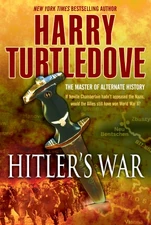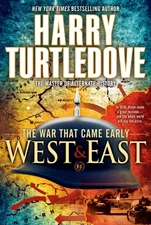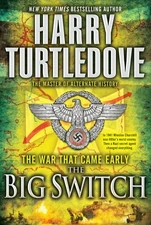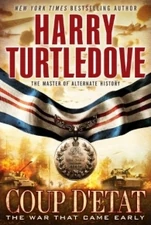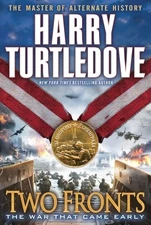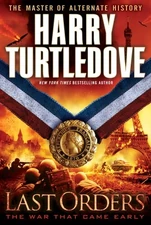
The heads of state and government gather for the signing ceremony.
The Munich Conference was an attempt between several great European powers to avert a war over the Sudetenland crisis of September 1938.
Involving Prime Minister Neville Chamberlain of the United Kingdom, Premier Edouard Daladier of the Third French Republic, Führer Adolf Hitler of the German Reich, and Prime Minister/Duce Benito Mussolini of Italy, the conference in Munich led to the Munich Agreement, which gave control of the erstwhile Czechoslovakian region Sudetenland to Germany. While Chamberlain was at first hailed for his efforts to keep peace in Europe, Daladier was far more pessimistic, realizing Hitler's long range plans in Europe. Hitler, likewise, was unhappy, even though he'd gained what he wanted, as he'd actually desired war.
Although PM Chamberlain stated just after the conference that it had brought "peace in our time," World War II began just one year later.
Literary comment[]
The above is referenced frequently in Harry Turtledove timelines with a Point of Divergence after 1938.
Munich Conference in Joe Steele[]
In the face of the threat posed by Adolf Hitler's Germany, many European countries were initially hesitant to take proactive steps against it. At the Munich Conference in September 1938, despite pledges of support from U.S. President Joe Steele and Soviet leader Leon Trotsky, British Prime Minister Neville Chamberlain and French Premier Edouard Daladier agreed to transfer the Sudetenland to Germany after repeated demands by Hitler.[1]
Munich Conference in The War That Came Early[]
The Munich Conference ended in failure for Neville Chamberlain and Edouard Daladier on 29 September 1938, when news of the assassination of Konrad Henlein reached Adolf Hitler, prompting him to vent rage against Czechoslovakia and order war to begin right in front of his horrified audience. Three days later, Great Britain, France, and the Soviet Union declared war on Germany after Wehrmacht forces initiated Case Green, the invasion of Czechoslovakia. This was the start of World War II.
Chamberlain and Daladier expressed disbelief that Hitler had nothing to do with Henlein's murder (by a Czech citizen who had followed the Sudeten German Party leader into Germany). Hitler, for once, was completely innocent of the charges leveled against him, and insisted so to his guests, but secretly was very pleased that a reason for war was so easily given to him.[2]
See also[]
- Richmond Agreement, an event in Southern Victory which is largely based on the Munich Conference.
References[]
- ↑ Joe Steele, pgs. 202-203.
- ↑ Hitler's War, chapter 1.
| |||||||||||||||||||
| ||||||||||||||||||||||

